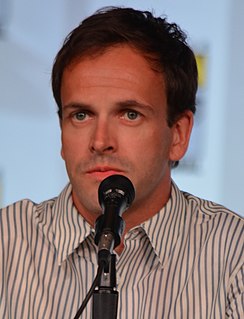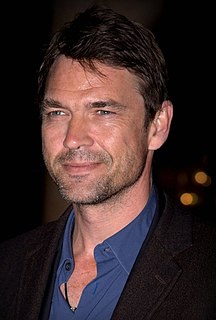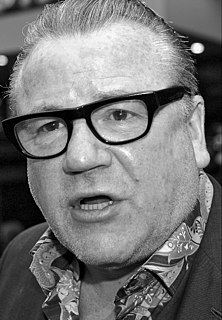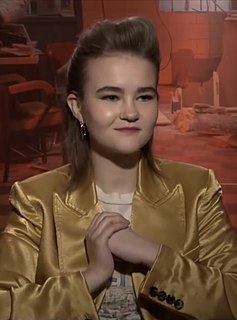A Quote by Rosamund Pike
Peter Chelsom and Edgar Wright are totally different directors and worlds apart, but both really accomplished directors who are certain of how they want to make a film.
Related Quotes
Different directors have different techniques in the use of films. Cronenberg is very different in the way he works with film, and how he takes the audience into his films is different than how Peter Jackson would do that or Jon Stewart. So, if you go between those artists, you shift gears and you kind of fall into the working method of that film.
I don't want to rescind American directors but I think that European directors in general, because of the size of the nations in Europe are exposed to all different cultures, they can easily travel from one distinct culture to another in a matter of hours - you can drive for two weeks across the United States and you're in the same basic culture - so there is a certain breadth of understanding and sophistication that they bring to it and frankly, in some cases they are less expensive than American directors.
It's not often I get to do a film that turns out good. Plus, there just aren't that many great directors out there. There are a thousand different decisions that need to be made with each script and it's the good directors that can make those decisions. It's a long and complicated process in regards to what looks good on paper. Working on a bad film can be fun too. It can be a good exercise that gets you writing.
To spend any time with someone who is among the top five film composers of the last 50 years is pure gold dust. I mean, not necessarily stylistically, because everyone is different in what their music sounds like, but the approach and how to look at a film, how to think about a film, how to decide what you want to do, how to think about characters, how to think about art, how to think about narrative, how to liaise with producers, how to liaise with directors.
Being known as a writer did change the relationships I had with directors. The rap on actors is that they always want to inflate their parts. But when directors know you write screenplays and have a different view of things, you really get invited into the huddle in a much fuller way. And those collaborations end in friendships.




































